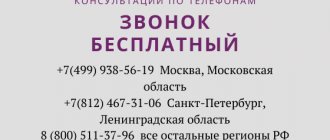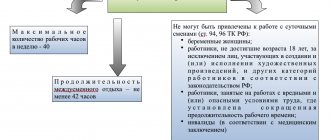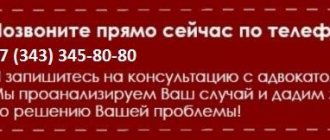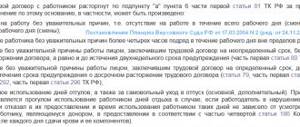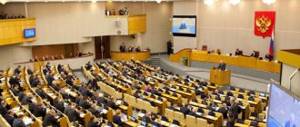Fine for violating curfew: article and amount of punishment, how to pay
The curfew provides for a fine of 100-5000 rubles. for violations of the rules of Article 5.35 “Failure of parents to comply with the rules for the maintenance and education of a child” and Art. 442 Code of Administrative Offenses of the Russian Federation. If we consider cases of minors, then recently cases of children leaving home have become more frequent. Most of them never return.
In this case, parents cannot have a significant influence on their behavior. In order to resolve this situation, municipal authorities introduced a curfew in 2021, providing for some restrictions on the presence of children under 18 years of age on the street.
Only local police officers can fine you, both on the street and in some establishments, who will have to pay more than 100 thousand rubles for violating the rules.
Note! A teenager is prohibited from walking at night: until 22:00 during the school period, starting in September, and until 23:00 in the summer, when the holidays begin. All celebrations with the participation of minors will now be of an exclusively domestic nature.
What to do if you receive such a fine
If a fine for curfew 2021 is issued on the spot, you need to follow the instructions:
- Take the receipt.
- Take your passport.
- Head to the nearest Sberbank branch.
- Remit payment.
- Put up a painting.
- Provide confirmation of payment.
All minors are subject to a curfew
Such a fine may also come by regular mail or email. Parents must pay for it in any convenient way: through service terminals or Sberbank’s personal account on the Internet. To find out what fine you need to pay, you need to go to the “Payment for services” menu and then follow the instructions.
Penalties will be assessed for failure to pay the fine. If after 60 days the violator refuses to pay the full amount, under Art. 20.25 of the Code of Administrative Offenses of the Russian Federation for failure to comply with the requirements of Art. 442 of the Code of Administrative Offenses of the Russian Federation provides for punishment in the form of correctional labor for a period of up to 200 hours.
According to lawyers, the curfew will significantly reduce juvenile crime.
Important! If parents are unable to pick up their child on time, the police officers themselves will deliver him to his registration address or send him to an orphanage.
Fine to parents for minors at night
Changes in legislation for 2021
Fine for unreadable numbers in 2021
In Moscow, legislative authorities are considering a bill to increase the fine for parents to 50 thousand rubles, and for entertainment institutions to 300 thousand rubles. Currently, a curfew has been established in absolutely all areas of the Russian Federation with minor changes in the amount of the fine.
Thus, in some regions, parents can be fined 100 rubles for a minor at night, while in others it can reach 5,000 rubles, taking into account exceptions for Moscow and St. Petersburg. You can be fined both on the street and in some establishments, which will have to pay more than 100 thousand rubles.
*
Certain teenagers and high school students often go home after school. In this case, the decree will require modification.
What to do if you want to report a violation
Fine for curtains on front windows in 2021
If it seems that the fine for the presence of minors after 22 hours was issued with some offense, then under Art. 30.3 it can be appealed in court. To do this, you just need to get a copy of this very resolution.
- You must go to the local commission for minors and take a copy of the document.
- Have it notarized and signed.
- Set the date of issue and expiration of the document after 10 days.
- Submit a written statement with a copy to the court.
- Wait for a decision.
Note! A complaint against the decision of the commission on juvenile delinquency can be filed no later than 10 days from the date of receipt of the receipt.
To avoid such a fine for violating curfew rules, all minor children should arrive home no later than 10-11 pm.
Today, schoolchildren are allowed to be on the street late at night only if their parents are nearby without intoxication or other adults are in adequate condition.
For all persons accompanying a minor child, it is necessary to obtain written permission from the parents and have it notarized. The rules of this law apply only to teenage citizens.
*Prices are current as of August 2021.
Source: https://shtrafsud.ru/prochie-shtrafy/straf-za-komendantskij-cas.html
Punishment for walking the dog
A dog in the house obliges the owner to take him for a walk. The law of the subject may establish the requirement that walking with a dog is allowed in the appropriate place and in the appropriate equipment - with a collar, muzzle and leash. For example, according to the Rules for Keeping Cats and Dogs in Moscow, it is prohibited to walk dogs on playgrounds, near kindergartens and schools, and near residential buildings. The amount of fines for non-compliance with the rules for keeping and walking dogs is indicated in regional regulations.
For example, residents of the capital will face a penalty of 1,000–2,000 rubles for:
• walking your dog without a leash in public gardens, parks and courtyards;
• walking on the territory of a school, kindergarten or hospital;
• visiting a store, market, beach, playground with a dog without a muzzle.
Therefore, if you have a dog or are traveling with it to another region, then find out about the laws in these places regulating the issue under consideration.
“Curfew”: if children violate, parents are responsible
The school year is coming to an end, and soon the long-awaited holidays will come for all schoolchildren - a carefree time for children. But parents should not loosen control over their children in order to protect them and themselves from various troubles, including those related to the “curfew”.
Specialists from the Office of the Ombudsman for Children’s Rights in the Kaluga Region will tell you all about the legal intricacies of the “curfew” and the consequences for violating it
"Forbidden" time
All children under 18 years of age in our country are under special protection of the state. “Curfew” is one of the measures of such protection, which prohibits, for safety reasons, persons under 18 years of age from being on the street and in public places at night unaccompanied by an adult.
This “forbidden” time for minors occurs from 23.00 to 6.00 in the summer and from 22.00 to 6.00 in the winter. Moreover, summer time begins on April 1, and winter time begins on October 1.
It is important to remember: in accordance with current legislation, children under 7 years of age should not be alone on the street or in public places at any time of the day. Children aged 7 to 18 years are subject to curfew.
Only parents and guardians, and not any adult, can accompany a child during curfew, and this rule is uniform throughout the Russian Federation.
For example, if a minor goes out with his adult friends or with any close relatives, even with a brother or sister, then this will still be considered a violation of the law, since in accordance with the Family Code (Articles 63 and 64) only parents or Guardians bear full responsibility for their minor children.
The curfew also applies on holidays, including New Year's and graduations. After 22-23 hours, a group of teenagers can go out into the street and set off fireworks, but only accompanied by someone who is responsible for them - teachers, educators, parents.
Some mothers and fathers believe that they can issue a power of attorney for an adult or give their official consent to a child’s walk during “curfew” with one of the adults, but the law does not provide for such actions.
Forbidden places
During prohibited hours, a child cannot be in public without the accompaniment of parents or guardians, or be present in places where the child’s presence may negatively affect his health and mental state, physical, intellectual, spiritual and moral development.
Public places include:
- streets and boulevards;
- restaurants and cafes;
- parks and squares;
- children's and sports grounds;
- staircases and entrances;
- train stations and public transport.
A separate group includes places where alcohol is consumed, where one can witness debauchery (saunas, hotels, etc.), gambling establishments and nightclubs. In addition, minors should not be present at night without adults at such facilities as:
- basements and attics in multi-apartment residential buildings;
- emergency and non-residential premises intended for demolition;
- construction sites;
- places where only tobacco products are sold;
- specialized premises or places for hookah smoking;
- overhead communications: pipes of heating mains, gas pipelines, etc.;
- roofs of buildings, structures, structures;
- technical floors of multi-apartment residential buildings, buildings, structures.
Violation and punishment
Any violation of the law entails punishment, and curfew is no exception. And here the main burden of responsibility falls on adults.
Punishment for those who do not keep an eye on their offspring is provided in the form of an administrative fine in accordance with Article 5.35 of the Code of Administrative Offenses of the Russian Federation (failure by parents to fulfill their responsibilities for raising and maintaining children).
As a rule, for the first offense, police officers can limit themselves to an explanatory conversation; for a repeated offense, parents have to pay a fine.
The specific situation is also taken into account:
- where the teenager was found;
- what time;
- whether he committed a crime;
- where and in what condition the parents were during this period.
In case of repeated violations, parents (guardians) are invited to the commission on juvenile affairs and may be deprived of parental rights.
If a minor was in the wrong place at a prohibited time, a police officer draws up a report. The document details where, at what time and under what circumstances the neglected child was discovered. A copy of the protocol is given to the parents. If they do not agree with the fact of detention, they can challenge it in a higher authority or district court.
However, children and teenagers cannot be detained solely for violating the curfew. The exception is when a minor refuses to give his name and residential address and does not have documents with him. In such a situation, he may be taken to the department for identification.
If a child has committed some minor offense, he can be detained for no more than three hours. During this time, his identity is established, a detention report is drawn up, after which the parents are invited, and the child is handed over to them against signature. At the same time, in order not to traumatize the child’s psyche, it is prohibited to keep him together with adult offenders.
But in any case, information about the offense must be entered into the database of the internal affairs bodies, which may affect the future fate of the child.
And further. Institutions that “shelter” a teenager at night can also be fined, so the conditions of the “curfew” for minors must also be observed.
Additionally, we remind you that with questions in the field of rights and legitimate interests of a child, residents of the Kaluga region have the right to contact the department for the protection of the rights and legitimate interests of the child, by phone, 57-26-45, or at the address: Kaluga, per. Starichkov, 2a, room. 101. Citizens also have the opportunity to make an appointment in person with the Commissioner for Children’s Rights in the Kaluga Region by phone: 8 (4842) 56-22-11.
Source: https://klentv.ru/article/komendantskiy-chas-esli-narushayut-deti-otvechayut-roditeli
Curfew for minors: what teenagers and their parents need to know
In 2009, Russia introduced a curfew for minors, limiting the time children and adolescents could spend outside the home.
Since then, it has been criticized more than once, has undergone some changes - for example, regional authorities received the right to adjust the time of the “non-children's hour” at their discretion - but also continues to operate throughout the Russian Federation. What is useful to know about this law in order to avoid getting into an unpleasant situation?
What is curfew
Teenagers of the 90s were familiar with the concept of a curfew only from old films about the war: after dusk fell, no one except their parents controlled their movements around the city.
But for today’s youth, the 2009 law has become a real reality.
Its essence boils down to the following: children and adolescents under the age of 18 are prohibited from being on the street or in public places during the period of time established by law. Typically during the night.
The 2021 Juvenile Curfew Law is no different from what was in effect before. As before, it establishes general provisions (age of teenagers, duration of restrictions, rules for transition to summer and winter options), which sometimes have slight differences in different areas and regions.
During dangerous periods
under certain conditions, the rule about “hour x” also applies to the adult population. for example, during the period:
- introduction of martial law;
- pogroms, arson and other manifestations of riots;
- floods, fires, earthquakes - in other words, disasters associated with the raging elements;
- other emergency situations.
At such moments, a ban on the appearance of citizens on the streets of the city after sunset helps maintain order, reduce the crime rate and protect civilians.
As an example, we can cite the DPR, on whose territory in 2021, from June to September, a curfew is still in effect - from 23:00 to 04:00.
it was suspended only on June 22 to allow school graduates to have their holiday. The same state of affairs remains in the territory of the LPR.
in peacetime
If during serious conflicts the government’s task is to protect all categories of the population, then in peacetime adult citizens are given the right to independently make decisions about their movements around the city at any time of the day.
however, curfew violations by minors are still considered unacceptable, given that crime rates increase at night.
therefore, in order to ensure the safety of those who, due to their age, are not yet able to bear full responsibility for their lives and health, the law continues to apply.
theoretically, the risks that lie in wait for teenagers in the dark corners of the city should be of primary concern to their parents.
However, the facts of negligent performance of their duties by older family members, as well as the presence of difficult teenagers who are not always ready to obey their relatives, make the curfew the only measure that can, if not completely remove minors from the street during a dangerous period of the day, then at least reduce the number of those exposed to risk.
the legislative framework
The rules of “non-children's hour” are officially enshrined in the Constitution of the Russian Federation and the Family Code. In particular, they are regulated by the Law “On Basic Guarantees of the Rights of the Child” No. 124-FZ of July 24, 1998 and Law No. 71, adopted in April 2009 and amending the previously existing document.
In Russia, the curfew for minors works as follows:
- if a child is from 7 to 16 years old, he can move freely around the city from 6 am to 10 pm in winter and from 7 am to 11 pm in summer;
- if we are talking about an older age group from 16 to 18 years old, then for such children “summer” time applies all year round. “Hour X” for them comes at 23:00, regardless of which month the calendar shows.
There is no time limit for children under 7 years of age, as they are generally prohibited from being outside without adult supervision at any time of the day or night. The only exception may be a playground located in the courtyard of the house where the child lives.
As before, in 2021, the curfew for minors vetoes the presence of young citizens not only on the streets and in the gateways of the city, but also:
- in stadiums;
- at train stations;
- in parks and squares;
- at bus stops and in public transport;
- at retail outlets;
- in entertainment centers;
- at public catering outlets, especially those with a license to sell alcohol.
Having discovered a child in one of the listed places at inopportune hours, police officers have the right to detain him, establish the identity of the youngest offender and members of his family, and then hand the teenager over to either his parents or their legal representatives.
If it is not immediately possible to transfer the detainee to the responsible persons, the child may be left in the police station building for 3 hours, after which he will be sent to the appropriate institution for minors.
Regulations on fines
Parents will not be able to simply go to the police station with identification documents and take their child home.
First, they will have to pay a fine for violation of curfew by minors and, for their part, improper performance of parental responsibilities. This requirement is stated in Article 5.35 of the Code of the Russian Federation on Administrative Offenses.
The fine varies from 600 to 3,000 rubles and depends on the region and whether this is the first offense or whether the child is regularly caught by law enforcement officers at inappropriate times.
For officials, if the minor was in their care at that moment, the fine can rise to 5,000 rubles. Well, an entertainment establishment, a retail outlet or, say, a cafe, allowing teenagers to stay on its territory at odd hours, will be forced to part with 10,000-50,000 rubles.
To avoid getting into a similar situation, check what time the curfew for minors in your region begins, and do not let your child go outside at this time without being accompanied by older family members or trusted persons who have a document with them that lists:
- child's details;
- parents' data;
- details of the person entrusted with guardianship, his duties and powers;
- validity period of the power of attorney.
A power of attorney will not interfere even with the closest family members (aunt, grandfather) if they have different surnames with the child, otherwise the patrol may have doubts about the relationship of the detainees. Well, it would be a good idea for a teenager over 16 years old to carry a passport with him in order, if necessary, to prove the right to stay on the street until 23:00.
Curfew in Moscow and regions
In 2021, the curfew for minors in Moscow will be customarily limited to the time frame of 23:00 - 07:00 from April 1 to October 31. This also applies to most regions of Russia, although - let us remind you - local authorities in any of them have the right:
- independently determine the list of prohibited places;
- make minor adjustments regarding the age of minors;
- change the start and end times of the “non-children’s hour”;
- set the date of transition from summer time to winter time and back;
- completely cancel the curfew on the occasion of a major national or municipal holiday organized by the district administration.
So, in Bashkiria in past years, teenagers were allowed to appear on the street until 00:00, although in 2021 they are going to cancel this practice and return to 22:00.
Public opinion
In both winter and summer, curfews for minors cause a lot of controversy. Its opponents can be found not only among teenagers themselves and their parents, but also among human rights activists who believe that situations vary.
High school students and minors can attend sections that are open until very late; study with tutors; earn extra money after school.
For these guys, the curfew creates a lot of problems with returning home, because not every one of them can be picked up by one of their relatives.
Of course, this has its inconveniences. But let’s not forget that the notorious “hour” was adopted not out of whim, but with the goal of protecting minors from danger to their physical, mental and moral health. It is no secret that in the dark the threat of becoming a victim of a crime increases, so it is still wiser to put up with the law and look for legal ways out of the situation.
By the way, Russia is far from the first sign in this area. The USA and many Western European countries have their own curfews or less strict but mandatory restrictions for teenagers.
There is no point in treating the curfew as something frivolous. Firstly, as already mentioned, it was created primarily to protect the child, and not to infringe on his rights.
And secondly, disobedience to the law is a direct administrative violation and entails a fine, which will be useless to challenge.
So, if there is a need to send a child out into the street after the deadline established by law, it is better to try to send a guide with the minor, without relying on “maybe”. Both your child and the family budget will definitely not suffer in this case.
Original article on the website
Source: https://zen.yandex.ru/media/id/5c69206a9d7a9a00aff8cbb0/5d160432bd2e7e00ad724015
Legislation
The time limit for the stay of children and adolescents in public places by the Family (SC) Code of the Russian Federation and the Constitution of our state, as well as:
- Federal Law No. 124 of July 24, 1998 “On the basic guarantees of the rights of the child in the Russian Federation”, in particular its article 14.1 “On measures to promote the mental, moral, physical and spiritual development of children”;
- Federal Law No. 71 “On Amendments to Federal Law No. 124” dated April 28, 2009
Regional authorities have the right:
- determine the list of public places;
- reduce the age of adolescents in accordance with local traditions, to which it is unacceptable for them to be on the street independently;
- reduce the allowed time limit in accordance with weather and climatic conditions.
Therefore, parents should focus not only on Federal legislation.
Curfew for minors
Family Law > Minor Children > Curfew for Minors
Curfew - a ban on being on the street or in public places without appropriate permission at a certain time of the day (usually at night).
This rule, approved by law, is introduced in dangerous periods, in wartime, in order to avoid many crimes or as a guarantee of the safety of the younger generation, as well as to establish and maintain order, and reduce the number of victims in a state of emergency.
In peacetime, a curfew is a time period during which children are prohibited from being alone in public places.
Most crimes are committed at night. In different regions of the Russian Federation, age restrictions and time frames for curfews differ.
Let's consider the rules and features of the curfew for minors in 2021.
Regional features
In the capital, Altai Territory and some other regions of the country, minors do not have the right to be on the street without special permission or an accompanying person from 10 pm to 6 am - from November 1 to the end of March, from 11 pm to 6 am - from April to October.
In St. Petersburg, there is a separate Law, according to which children cannot be on the street from 10 pm to 6 am - from September 1 to the end of May, from 11 pm to 6 am - from June 1 to the end of August. The ban does not apply during New Year's Eve, as well as during holidays that were organized by government departments or local governments of St. Petersburg.
The normative act does not apply to persons under 18 years of age if they have been declared emancipated by a court decision or have entered into an official marriage relationship.
In Bashkiria, the duration of the curfew has been reduced - minors can be on the street from 6 a.m. to 12 p.m.
In other regions, other restrictions related to local regulations apply. Typically, differences in prohibitions are associated with cultural characteristics and the attitude of the authorities and parents themselves to the need for this phenomenon.


